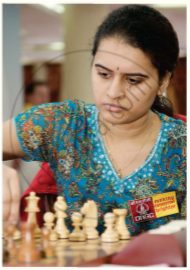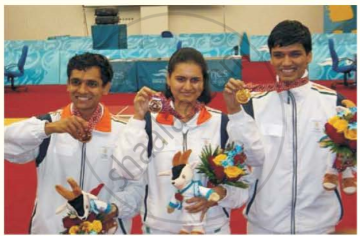Advertisements
Advertisements
प्रश्न
Mr Gessler was spending his days with great difficulty. Give suitable arguments in favour of this.
उत्तर
Mr Gessler was having a tough time in his final years. He had lost his customers because of the delay in delivery of his orders.
APPEARS IN
संबंधित प्रश्न
Answer these question in 30–40 words.
Where was the shehnai played traditionally? How did Bismillah Khan change this?
Why does grandfather take Toto to Saharanpur and how? Why does the ticket collector insist on calling Toto a dog?
Why do you think Bill Bryson’s wife says to the children, “Take the lids off the food for Daddy”?
Sergei says, “I am happy that my words have taken effect.” Why does he say so? Is he right in saying this?
a) Read the second stanza again, in which Wordsworth compares the solitary
reaper's song with the song of the nightingale and the cuckoo. On the basis of
your reading (and your imagination), copy and complete the table below. (Work
in groups of four, then have a brief class discussion.
| Place | Heard by | Impact on listener | |
| Solitary Reaper | Scottish Highlands | the poet | holds him spellbound |
| Nightingale | |||
| Cuckoo |
b) Why do you think Wordsworth has chosen the song of the nightingale and the
cuckoo, for comparison with the solitary reaper's song?
c) As you read the second stanza, what images come to your mind? Be ready to
describe them in your own words, to the rest of the class. (Be imaginative
enough and go beyond what the poet has written.)
Avik, a correspondent for his school magazine, interviews Grandmaster Koneru Bumpy. Let us read :
INTERVIEW WITH KONERU BUMPY
Avik : Good morning, Ma'am! Congratulations on your achievements in the World Grand Prix Women's Chess Championship in Istanbul recently!

Koneru Humpy : Thank you! This is my biggest win in the women's circuit. This is very significant, considering that it has come in an event which had three former world champions.
Avik : Indeed! Please tell us something about yourself, Ma' am!
Koneru Humpy : I was born in Gudivada, near Vijaywada, in Andhra Pradesh on March 31, 1987. I was originally named 'Humpi' {which means champion) by my father Mr Koneru Ashok, who later changed the spelling to Humpy, to give the nrune a Russian flavour. I write my family name , Koneru, before my given name, as is the convention with the Telugu speaking people. I started playing chess when I was 5 years old.
Avik : Who introduced you to the game?
Koneru Humpy : My father acquainted me with the game. He is also my first coach. I first showed interest at the age of 6 years, when I watched him play a game and suggested a move. Indeed it was the move that actually got me into the game.
Avik : Your father left his teaching profession to make you a champion !
Koneru Bumpy : Yes, when I took the 4th place in the Indian Under 8 Championship in 1995, he decided to leave his career and dedicate his time to me.
Avik : And you had won four World Championship at a very early stage.
Koneru Bumpy : Yes, the World Girl Under 10, the World Girls Under 12, the World Girls Under 14 and World Girls Junior Chrunpionships. I acquired my IM title in 1999 and in May 2002, I achieved my 3rd GM Norms in Elekes Memorial Grandmaster Tournrunent in Budapest.
Avik : You held the record from 2002 to 2008 for the youngest woman ever to become a grandmaster!
Koneru Bumpy : Yes, I achieved it at the age of 15 years, 1 month, 27 days, beating Judit Polgar's previous record by 3 months; which was later lost in the Women's World Chess Championship in 2008 to Hou Yifan. I won the World Junior Girls Chess Championship in 2001 and won the edition or North Urals Cup, the Women's Super Tournrunent held in Krasnoturinsk. In 2006, I participated in the Women's World Chess Chrunpionship, but my crunpaign had to end early in the second round. I played in the first board of Monte Carlo Chess Club and won the last two editions of the European Club Cup.
Avik : You have got some awards also !
Koneru Humpy : Yes, Arjuna Award in 2003, Padmashri Award in 2007 and Raja-Lakshmi Award in 2008.

Avik : In India, many young chess players are ready to take a break in education and are fully focussed on chess preparations. What are your views?
Koneru Humpy : I don't think that taking up chess as a career and completely neglecting studies will be necessary at an earlier stage. After getting to a certain level in the game, they themselves should decide their preferences i.e. whether to play seriously or not.
Avik : What advice would you offer to parents of enthusiastic and talented chess children?
Koneru Humpy : Parents should not compel children to play chess. If children are genuinely interested in the game, they should encourage them. But they shouldn't hurry to get results.

Avik : How often do you exercise? Do you think daily physical exercise can help a chess player to cope with the pressure and increase the brain's ability to concentrate?

Koneru Humpy : I spend around one hour per day on physical exercise. Exercise is a must for every chess player. As the proverb says, 'a sound mind in a sound body'. Exercise shows a lot of impact on the brain.
Avik : Thank you for talking to me and giving valuable advice.
Koneru Humpy : Thank you.
"My father lived at Blenheim then,
Yon little stream hard by;
They burnt his dwelling to the ground,
And he was forced to fly;
So with his wife and child he fled,
Nor had he where to rest his head.
"With fire and sword the country round
Was wasted far and wide,
And many a childing mother then,
And new-born baby died;
But things like that, you know, must be
At every famous victory;
Read the lines given above and answer the question that follow.
Explain the lines:
“With fire and sword the country round
Was wasted far and wide,’
“If you are rested I would go,” I urged. “Get up and try to walk now.”
“Thank you,” he said and got to his feet, swayed from side to side and then sat down backwards in the dust.
“I was taking care of animals,” he said dully, but no longer to me. “I was only taking care of animals.”
There was nothing to do about him. It was Easter Sunday and the Fascists were advancing toward the Ebro. It was a grey overcast day with a low ceiling so their planes were not up. That and the fact that cats know how to look after themselves was all the good luck that the old man would ever have.
Read the extract given below and answer the question that follow.
Explain the line, ‘There was nothing to do about him.’
This woman had been despised, scoffed at, and angrily denounced by nearly every man, woman, and child in the village; but now, as the fact of, her death was passed from lip to lip, in subdued tones, pity took the place of anger, and sorrow of denunciation.
Neighbours went hastily to the old tumble-down hut, in which she had secured little more than a place of shelter from summer heats and winter cold: some with grave-clothes for a decent interment of the body; and some with food for the half-starving children, three in number. Of these, John, the oldest, a boy of twelve, was a stout lad, able to earn his living with any farmer. Kate, between ten and eleven, was bright, active girl, out of whom something clever might be made, if in good hands; but poor little Maggie, the youngest, was hopelessly diseased. Two years before a fall from a window had injured her spine, and she had not been able to leave her bed since, except when lifted in the arms of her mother.
“What is to be done with the children?” That was the chief question now. The dead mother would go underground, and be forever beyond all care or concern of the villagers. But the children must not be left to starve.
Read the extract given below and answer the question that follow.
What did the neighbours do to help?
Find in the poem lines that match the following. Read both one after the other.
The rebel refuses to cut his hair.
Why did the python help Golu?
What message did the old clocks spread as they chimed ‘Merry Christmas’ together?
How do we know that Akbar was fond of Tansen? Give two reasons.
Why were the sunrays keen to go down to the earth the next day?
Discuss the question in pairs before you write the answer.
Who did he choose next?
What is the mystery about the child’s school teacher? How does it plan to discover the truth?
In groups of four, discuss the following lines and their meanings.
(i) All that you do is match the words
To the brightest thoughts in your head
Find out the meaning of the following words by looking them up in the dictionary. Then use them in sentences of your own.
courtier
Put each of the following in the correct order. Then use them appropriately to fill in the blanks in the paragraph that follows. Use correct punctuation marks.
- English and Hindi/both/in/he writes
- and only / a few short stories/many books in English/in Hindi
- Is/my Hindi / than my English/much better
Ravi Kant is a writer and ………….. Of course, he is much happier writing in English than in Hindi. He has written …………….. . I find his books a little hard to understand ………………… .
Where does Portia say that she and Narissa will stay until their husbands return?
